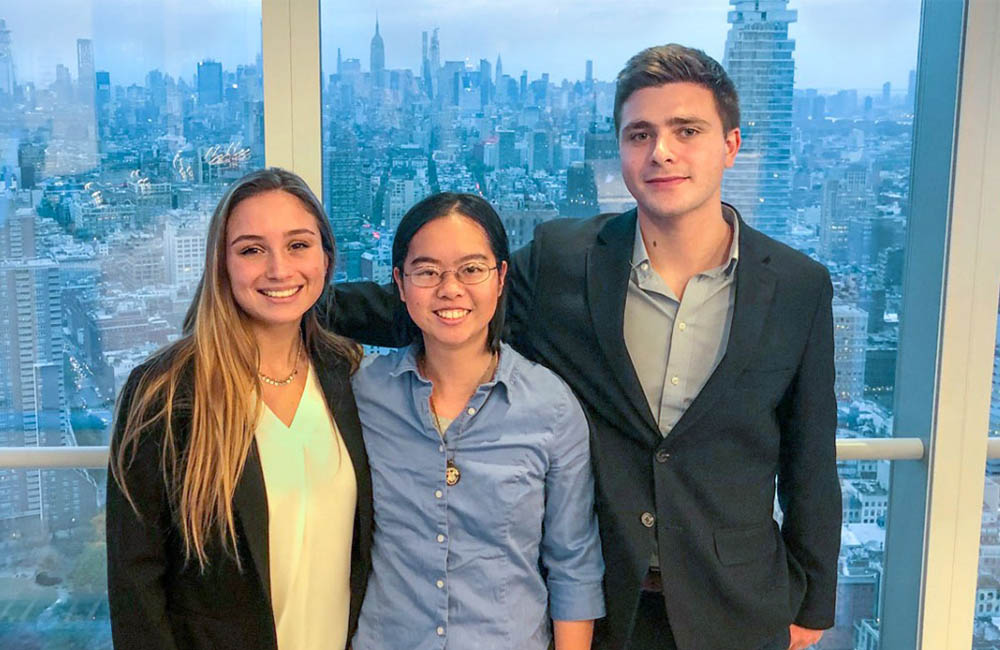Zing is a community engagement platform that connects students to their classmates to create mutually beneficial relationships on college campuses. After discovering a need for breaking the barriers of introduction and lessening the sense of isolation students feel in classrooms, founders Alisa Lai ’22, Jordyn Goldzweig ’21, and Sam Brickman ’21 joined eLab’s 2020 cohort, comprised of 24 student startups.
The Zing team recently developed a spin-off platform focused on fostering human connection amid the COVID-19 crisis: Quarantine Buddy. The founders wanted to respond to the loneliness and boredom that many individuals are experiencing while social distancing, so they created the platform for people to support and entertain one another during this difficult time.
Quarantine Buddy recently launched with a trial run distributed to a variety of demographic groups online. While Zing was targeted toward students, Quarantine Buddy is not focused on any one age-group—the founders discovered an unexpected interest from the elderly community. According to Goldszweig, one short-term goal is “tapping into that curiosity that we originally saw from our pilot and seeing if there’s something there.”
The founders have attributed the success of Zing and the development of Quarantine Buddy to their experiences in eLab, Cornell’s prestigious student startup accelerator. “The reason we were able to come up with this so quickly and launch it and run our test is because of all that eLab taught us,” stated Brickman.
Goldzweig echoed this, acknowledging concrete skills the team gained from participation in eLab, including the important process of customer discovery. “[Customer discovery] helped us, because it allowed us to talk to different people and learn what problems they faced during quarantine, so we could then best position our service to help them. That is a huge thing we learned from the eLab team and all the mentorship we have had this past year.”
While the customer discovery process revealed an unexpected number of older users who showed interest, part of the value of the app is its ability to connect people regardless of demographics. Many connections have been made following Quarantine Buddy’s first trial run, including a college-student stuck at home while his mom focuses on hospital work with a 77-year-old-widow living alone, and a guitar player and another musician who have been collaborating via Zoom.
“We’re really just trying to help people during this quarantine in any way that we can,” said Goldzweig.
Join Quarantine Buddy now at the startup’s pilot site: https://www.qtinebuddy.com. For any inquiries, please contact Jordyn Goldzweig at [email protected] or Sam Brickman at [email protected].
Quarantine Buddy was also featured recently in the Cornell Chronicle.

